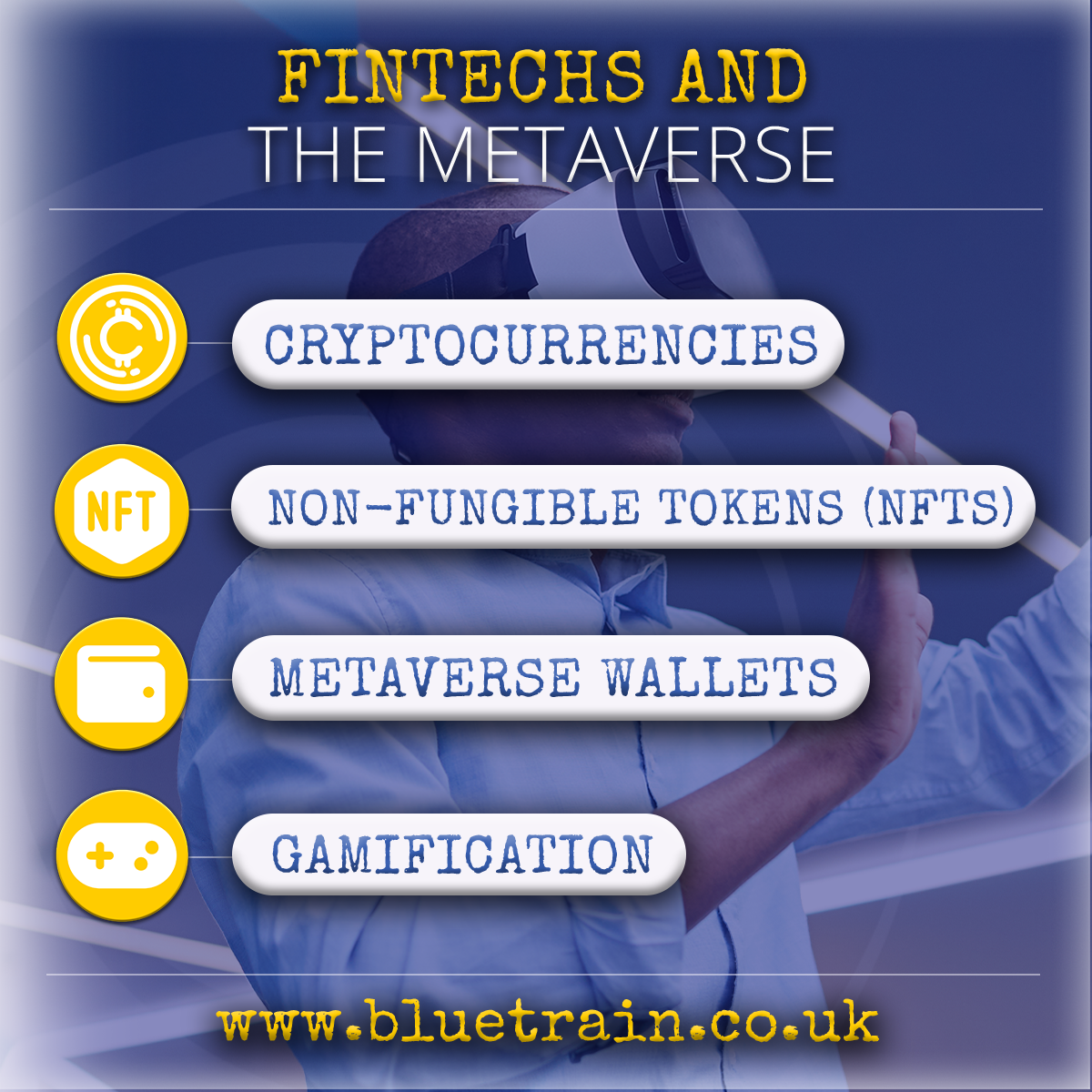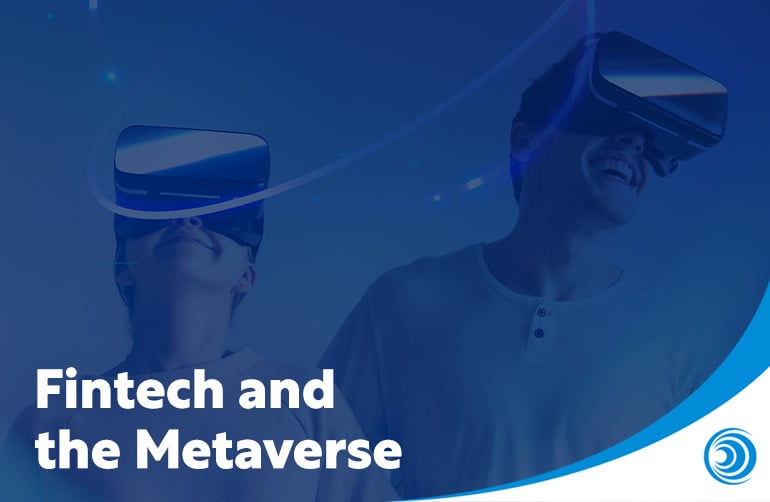- AI Visibility: How Brands Get Surfaced in Large Language Models - January 9, 2026
- Best Fintech Marketing Campaigns - November 3, 2025
- 5 Fintech Copywriting Tips That Actually Work - November 3, 2025
The Spanish essayist George Santayana once wrote:
“Truth is only believed when someone has invented it well.”
The metaverse is currently being invented. But will it turn out well enough to be believed?
As a content marketing agency for fintech and payments, we are well aware of the big names. They are already making serious moves into the metaverse.
So, how seriously do those in fintech need to take the metaverse?
Let’s find out.
What is the metaverse?
“The metaverse is a virtual-reality space in which users can interact with a computer-generated environment and other users.”
(Oxford Languages)
The metaverse is a virtual space that allows a range of interesting activities. For example, users can connect with one another, take trips to digital locations, or go shopping.
Users can even buy and sell digital assets such as NFTs (pronounced ‘en ef tees‘, not ‘nffts’ ) – more on those later.
Origins
The word ‘Metaverse’ dates back to the early 1990s.
In 1992, Neal Stephenson coined the term ‘metaverse’ in the sci-fi novel ‘Snow Crash.’
Thirty years later, he partnered with Peter Vessenes, a cryptocurrency enthusiast. To create a metaverse-focused blockchain called Lamina1.
Market
Adoption of the Metaverse is increasing globally at an exponential rate. There are predictions that the market will be worth $800 billion.
Since the beginning of 2020, there has been a massive spike in people searching for the metaverse. (According to Google Trends analytic hub)

As of 2023, the metaverse had 400 million monthly active users.
Metaverse development accelerated due to COVID-19 and the lack of in-person human interaction, as believed by 92% of respondents in a public survey.
An example of the metaverse in action
Gaming is a vital aspect of the metaverse.
Second Life, launched in 2003, is an early example of the metaverse, still popular today.

Gamers create digital avatars to explore and interact with the world Second Life has created. They can also connect with other users and trade goods or services using the game’s ‘in-world’ currency.
Users are joining the metaverse via different games, too. This includes gaming, with hit games like – Fortnite.
Fortnite is a viral online video game developed by Epic Games. Featuring different game modes, but “Battle Royale” is the most common. In which 100 players use weapons and materials to compete to be the last one standing on an island while avoiding a shrinking play area.
This game gets Gen-Z more involved in the metaverse through virtual concerts. By partnering with singers like Ariana Grande or Travis Scott to perform within the game.

Fintech’s and the Metaverse

Companies in the fintech and the payments industry are increasingly aware of the metaverse’s potential. Many are already developing technology to support its growth.
Cryptocurrencies
Cryptocurrencies are set to become the de-facto payment method for buying and selling in the metaverse.
Users are also becoming comfortable with ways to acquire, handle, and store them.
Axie Infinity (AXS) is currently the biggest metaverse cryptocurrency, attracting more than three million active players on the platform.
Existing financial institutions must adapt to cryptocurrency and blockchain-derived models. To meet the growing demand and the potential explosion of new use cases.
PayPal and Mastercard are ahead of the curve and fully engaging with cryptocurrency.
Both companies agree that crypto will be vital to the future of payments and the metaverse.
Non-Fungible Tokens (NFTs)
A non-fungible token (NFT) is a cryptographic asset on a blockchain. They have unique identification codes and metadata to distinguish them from each other.
NFT ownership is recorded in the blockchain and can be transferred by the owner, allowing NFTSs to be traded and sold.
While NFTs are commonly known for digital art, it is a common misconception that this is all they are.
There are many other use cases for them, such as music, fashion, event tickets, and real estate.
NFTs are a vital element of the metaverse economy. They are necessary for its users to interact with other metaverse societies.
Facebook’s parent company, Meta, will provide digital collectables to its three billion users.
“The efforts are vital to its goal of building and monetising a virtual avatar-filled world known as a metaverse over the next decade.”
(Financial Times on Meta )
Metaverse wallets
A metaverse wallet works similarly to any other digital wallet. It allows you to perform secure transactions and store assets.
These wallets can be used to buy and sell products in the metaverse, like NFTs or virtual real estate. They can also be used to receive or transfer tokens between users.
After The Facebook Company rebranded to Meta, Mark Zuckerberg launched ‘Meta Pay’.
Meta Pay allows users to shop, send money, or donate to charity. It is available on all meta platforms, such as Facebook, Instagram, WhatsApp, and Messenger.
This wallet will also allow you to manage your identity securely, what you own, and how you pay in the metaverse.
Gamification
The concept of gamification improves consumer engagement. When game mechanics or elements are added to a process, product, or solution.
The process generally involves setting objectives, monitoring progress, and completing tasks. This unlocks rewards, like cash incentives, bonuses, and gifts.
Incentivisation is also popular with fintech companies.
When expanding to Europe, Revolut organised a competition between universities. This motivated students to register and elevate their university’s ranking to the top.
By the end of the campaign, over 100 universities and 1000s of students had signed up.
Gamification finance apps generally use a PLB System (points, leader boards, badges) to incentivise customers to complete specific actions, like reaching a savings goal.
Gamification is surging in popularity, with the market set to rise to over $30 billion by 2025.
Are you ready for the metaverse?
The metaverse is still in its early stages of development and is evolving constantly.
However, there could be benefits of thinking ahead and factoring the metaverse into your marketing strategy…
New business opportunities
The metaverse is set to provide excellent business opportunities like marketing or advertising.
It offers a unique experience for promoting and consuming services using marketing strategies. Methods include visual storefronts, curated shows, and interactive customer services.
This level of interaction could surpass current electronic capabilities, presenting a more appealing and lifelike experience that would increase popularity- for services like video conferencing.
Networking using metaverse technology could see a massive surge in popularity again. A previous example of this was Zoom during the pandemic.
This also applies to fintech B2B marketing as it shifts towards B2C marketing.
Immersive experience
The metaverse almost allows for a 3D viewing of the internet and content.
Using haptic technology enables you to see, hold, and even feel products. An experience of touch by applying forces, vibrations, or motions to the user).
It is forecasted that the market for haptic technology will be worth $28 billion dollars by 2026.
The virtual world allows users to experience it in the most immersive way possible. Consumers can exercise, socialise, play games, and attend events in a virtual environment.
The metaverse enables businesses to blend the physical and virtual realms, allowing more innovation in the hybrid events format.
Businesses can participate in online events by creating a virtual booth. Attendees can walk up to the metaverse as they would in person.
Many marketers prioritise customer experience. Hosting brand or product launch events in the metaverse enables more creative and distinctive customer experiences.
Also, it’s far more cost-efficient than hiring venues and the production elements needed to stage real-world events.
Positive use cases for cryptocurrencies and NFTs
Cryptocurrency and NFTs play a massive role in the metaverse. Blockchain technology helps create security, trust, and transparency.
Users will become more comfortable using cryptocurrency and NFTs, resulting in significant growth and widespread adoption.
Criticisms and potential disadvantages of the metaverse
Like many things, the metaverse does come with its issues…
Privacy, security, and cybercrime
The metaverse is still new, so sophisticated cybersecurity levels have yet to be developed. This makes it susceptible to illegal activities like fraud, money laundering, and cybercrime.
Cybercriminals are employing phishing URLs to impersonate real metaverse platforms, simultaneously emptying investors’ digital wallets and posing security threats.
The decentralised nature means governments don’t have the power to fight and counter cybercrime in the metaverse.
Disassociation with the real world
A common concern regarding the metaverse is its possible end effect on the user.
People are voicing concerns about the sociological impact. Users overly exposed to the metaverse may risk disassociating from reality and losing physical attachment.
This trend has also been seen with the use of mobile phones, with users having an average screen time of 5.4 hours a day. Imagine what it will be like when the metaverse becomes mainstream.
The metaverse blurs the lines between virtual reality and real life.
In Roblox, a digital Gucci Dionysus bag fetched $4,115 on the Roblox Marketplace – three times its physical value. Has the disassociation from the real world already begun?

Technical issues
The metaverse requires a fast, reliable internet connection to make the virtual world seamless. This must include fibre-based connections and 5G technology.
This could lead to metaverse exclusion for those who can’t access the metaverse – much like financial exclusion.
This means that some people and communities may not be able to enjoy its benefits. The problem will grow as the metaverse becomes more integral to mainstream life.
What are the metaverse critics saying?
Some critics believe it won’t take off. They cite several reasons why, such as:
Monetisation challenges:
The metaverse’s economic model is still uncertain. Some critics question how businesses can generate revenue and sustainable growth in a virtual environment.
Advertising effectiveness:
The efficacy of traditional advertising methods within the metaverse is similarly still being determined. Adapting to immersive and interactive ad formats will no doubt be complex and challenging
Intellectual property rights:
Protecting IP in the metaverse is complex, given the user-generated content and potential for copyright infringement. This could lead to legal and financial complications for businesses.
Competition and market saturation:
Major tech companies dominate the metaverse’s development. This might limit opportunities for smaller players.
Privacy and regulatory concerns:
Businesses operating in the metaverse may face regulatory hurdles and privacy issues. Data collection and user tracking could become even more pervasive and intrusive.
Investment risks:
The hype surrounding the metaverse might lead to inflated expectations and investment risks for businesses. If the metaverse fails to deliver on promised innovations, its interest could spiral downward.
Conclusion
The metaverse is an exciting new virtual world that fintech and other industries are beginning to adopt. It has become a standard part of their marketing and business development strategies.
Fintechs are set to become huge players within the metaverse – from cryptocurrency to digital wallets.
Metaverse adoption has several benefits, but every new concept has risks and disadvantages.
Critics are quick to point those out. And there is solid reasoning behind many of the points they raise.
Whether these concerns will fade away or the metaverse will implode remains to be seen. Either way, fintechs should keep a close eye on it…
Whether you seek an experienced fintech copywriting agency or an SEO fintech marketing agency, we’ve got you covered.
We assist our clients in developing fintech marketing with expert strategies and tactics that work in the real and digital realms.
Feel free to get in touch, and let’s discuss how we can help your business.
